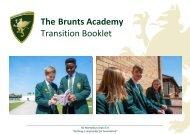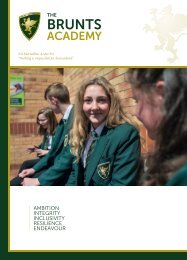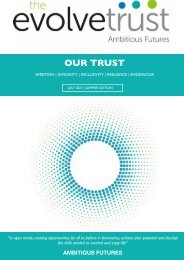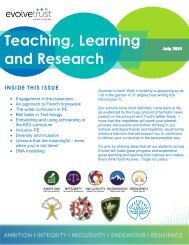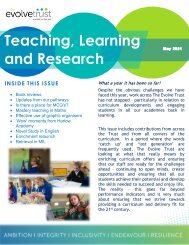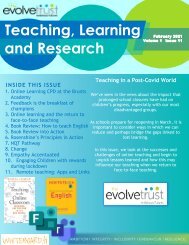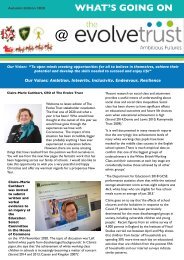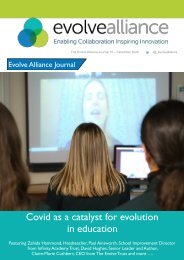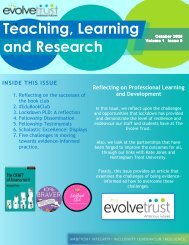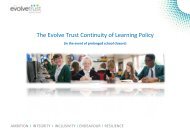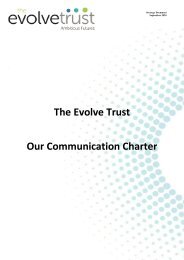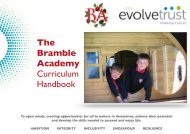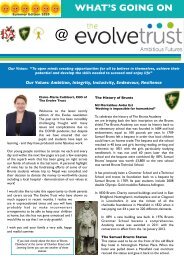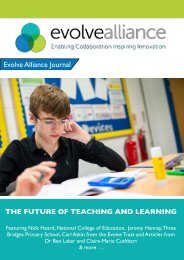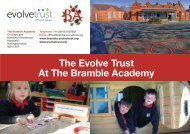Summer 1 Teaching and Learning Newsletter
You also want an ePaper? Increase the reach of your titles
YUMPU automatically turns print PDFs into web optimized ePapers that Google loves.
Embracing Online PLD literacy in your subject:
A reflection of Kate Jones’ book
By David Irons
Page 3
In terms of Chapter 4 if we were still in
school I’d definitely try the speeding ticket
idea. It’s a big issue in Humanities that
students often give very short and
unsupported answers. A good example was
this year when we had a source question for
Year 9 that had a Nazi schoolbook
illustration and a series of questions such as
“How can we tell the Jewish man is the bad
character in the book?” what we hope for is
a detailed explanation of the Jewish
stereotype by the Nazi’s but often you’d get
an answer like “He looks bad” when in
reality you want them to write in a
complete sentence and give supporting
evidence. The main reason I think is
because perhaps in History where we often
require longer answers and students see a
time limit they think they’re going to
struggle. I think the speeding ticket would
help students slow down and take more
time to include the details in their work. I
like what the book says about it reinforcing
the idea that you don’t see just finishing
work as a reason for praise that it needs to
be of a good standard and thus reinforces
expectations of good quality work.
I wasn’t so keen on the SPaG watch idea as
I think it may take more “Training” for the
students than many of the other ideas. I
think though for a subject like say English
that have many more teaching hours a week
its an excellent tool. I just think with an
hour a week I’d struggle to get students
trained to where this is a normal activity as
it may be many weeks between us using it.
I can also see how it may be useful for say
PP or GT students by engaging them in a
different way. Alternatively it would be
something that if it was done across a whole
school could be very effective.
From my own experiences I agree with her
about popcorn reading. I’m not a fan as I
see students not taking it seriously and too
busy worrying about when it will be there
turn rather than focusing on what the
meaning of what is being read is. I like the
idea of giving students some prior time
with text though. I’ve often used the “Ok
two minutes scan read it and highlight any
words you don’t understand” approach
before going through sources as a class. I
also liked the book club idea and think it
can link brilliantly to History, for example
when we look at the World Wars we could
recommend Warhorse and even perhaps
have a postcard drop box for students
who’ve read it to do a little task such as
how does the work of fiction relate to the
facts they’ve learnt.
I like some of the ideas she talked about in
speaking and listening. Sadly it was very
tech heavy, not something I’ve ever been
blessed with in a school, the ideas though
could work well. I’ve once done a newsroom
lesson on Dunkirk where I had students
producing a newspaper but drip feeding
them information verbally. So for example
the lesson started off with an official
government announcement. Five minutes
later they could interview an officer from
the Navy and ask questions. Ten minutes
after that they got an interview with
Churchill etc. Students enjoyed the lesson
but it was kind of chaos, however I suspect
real life news rooms are pretty similar so
maybe a good simulation.




